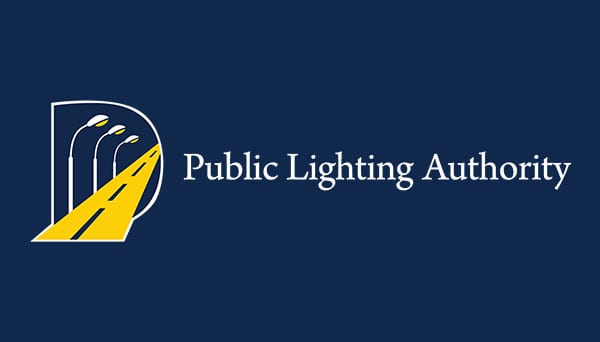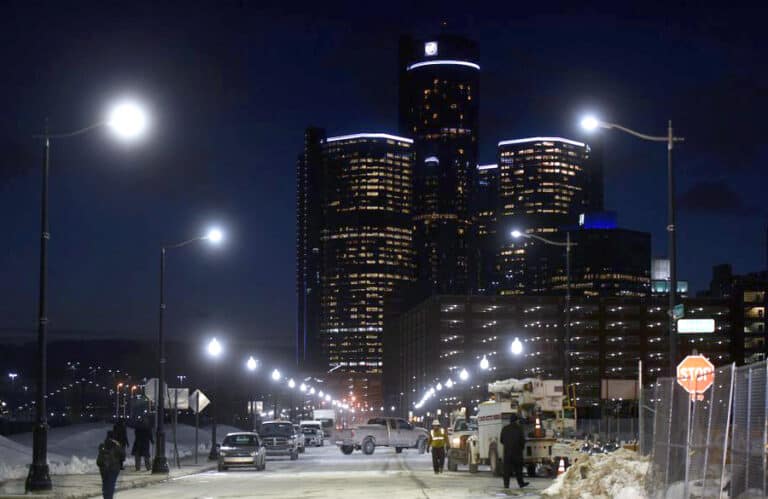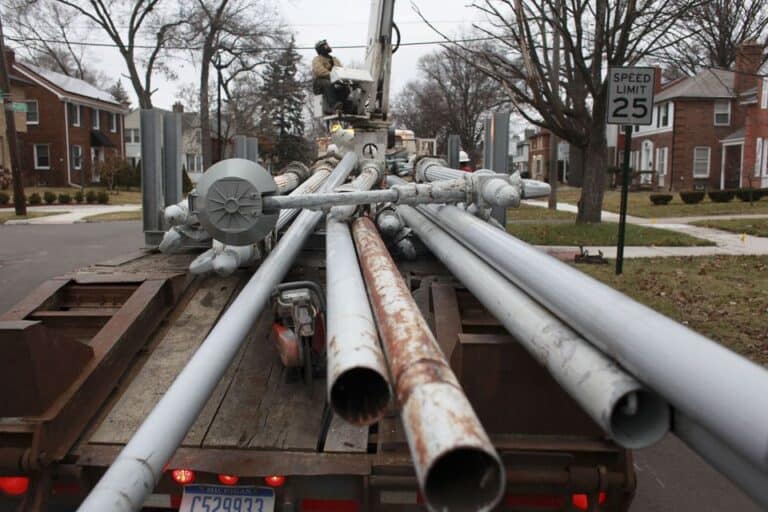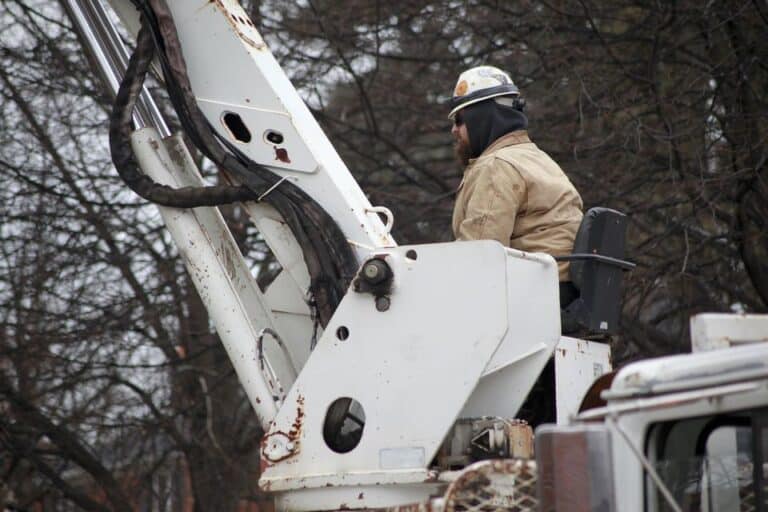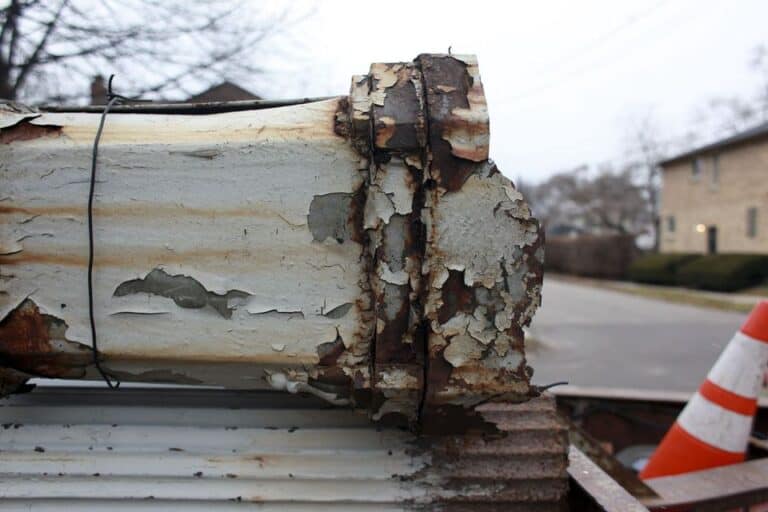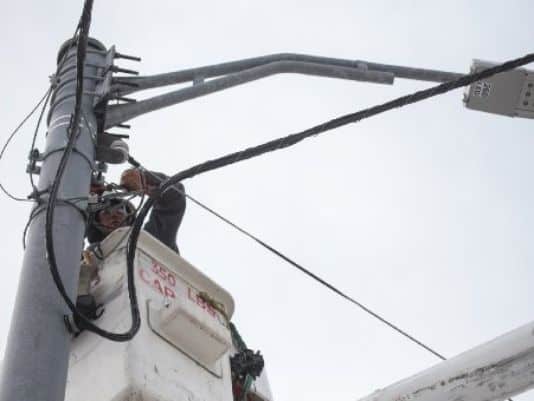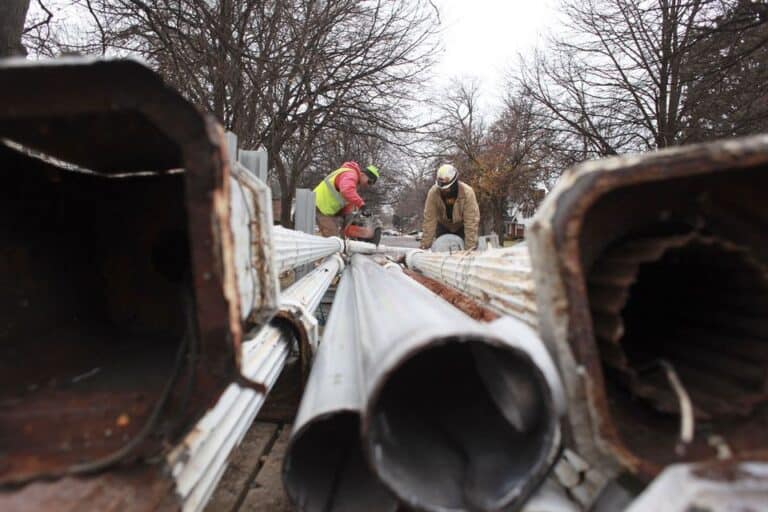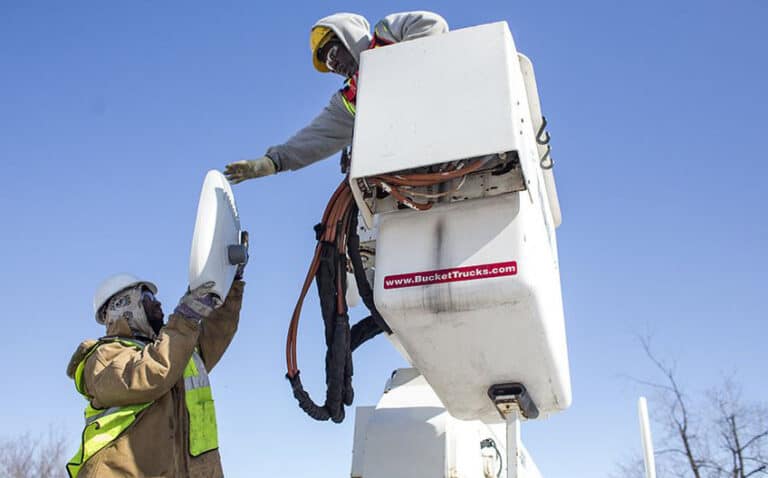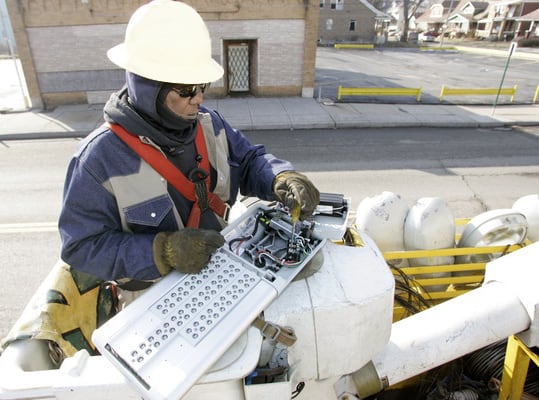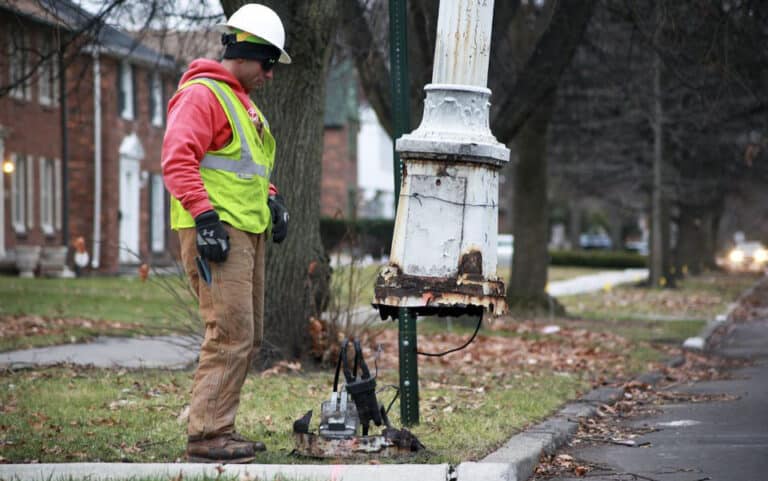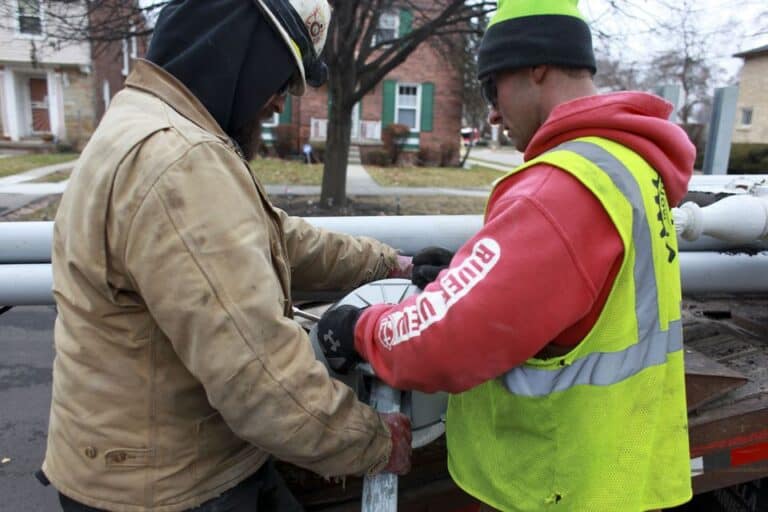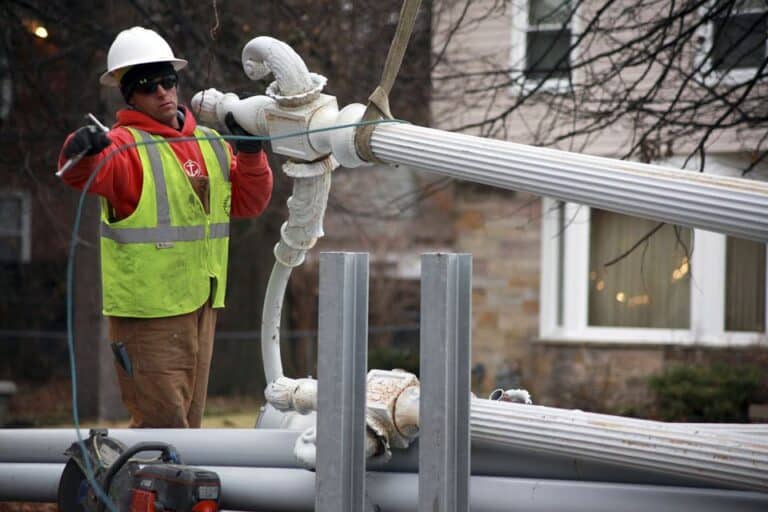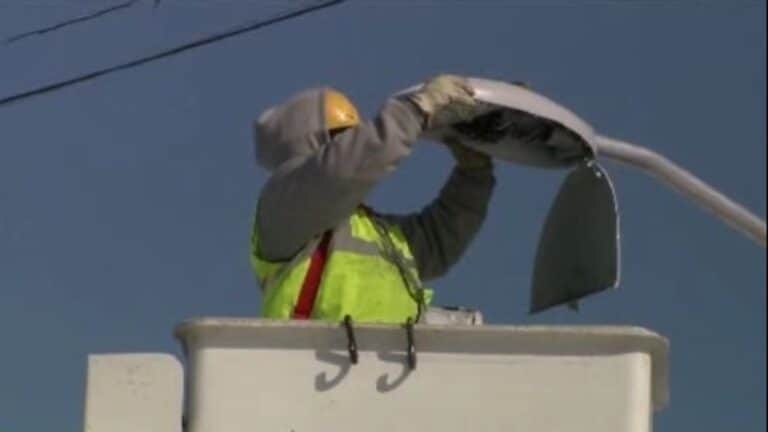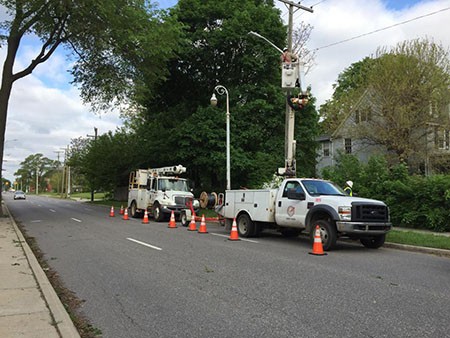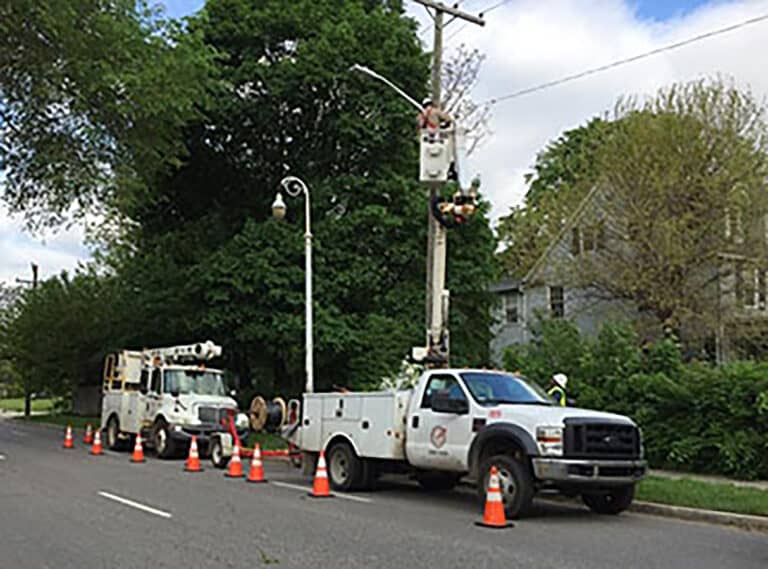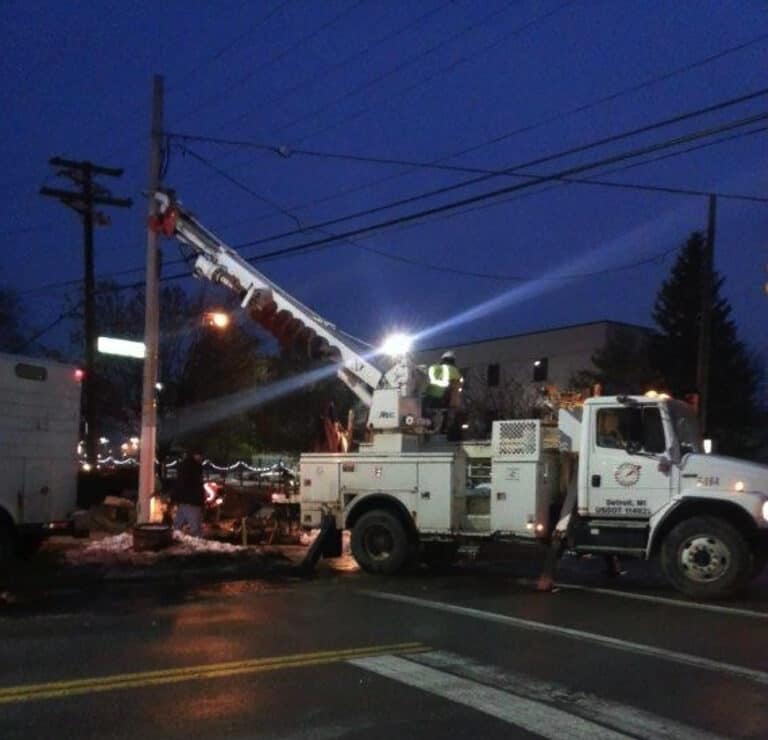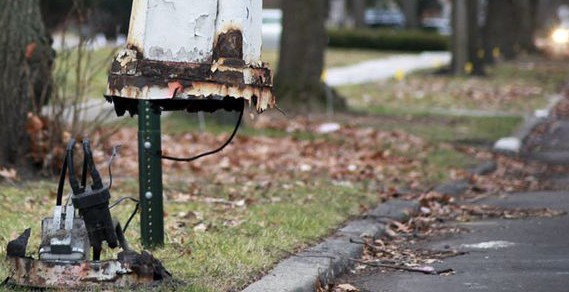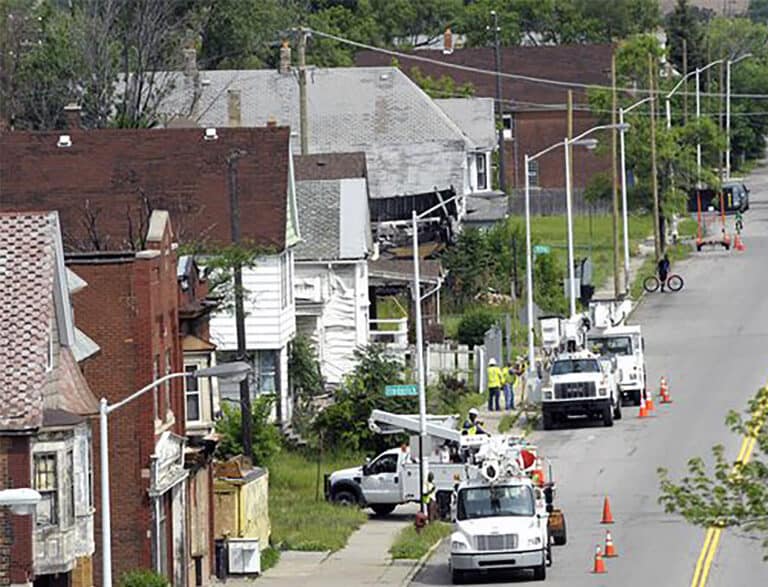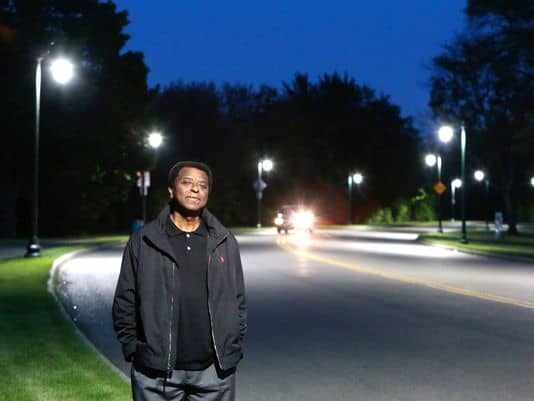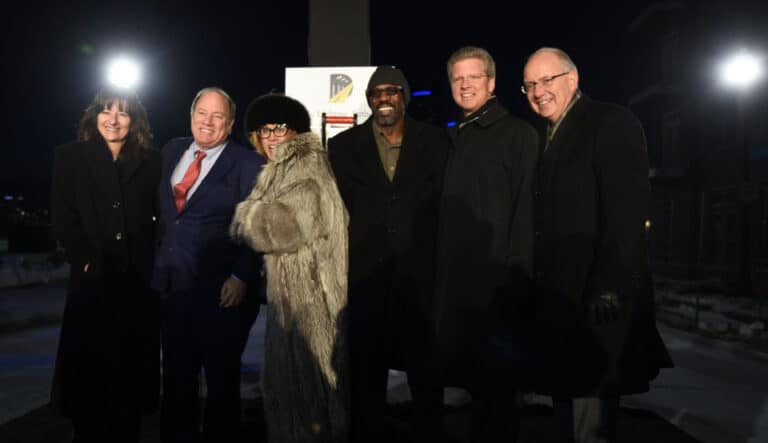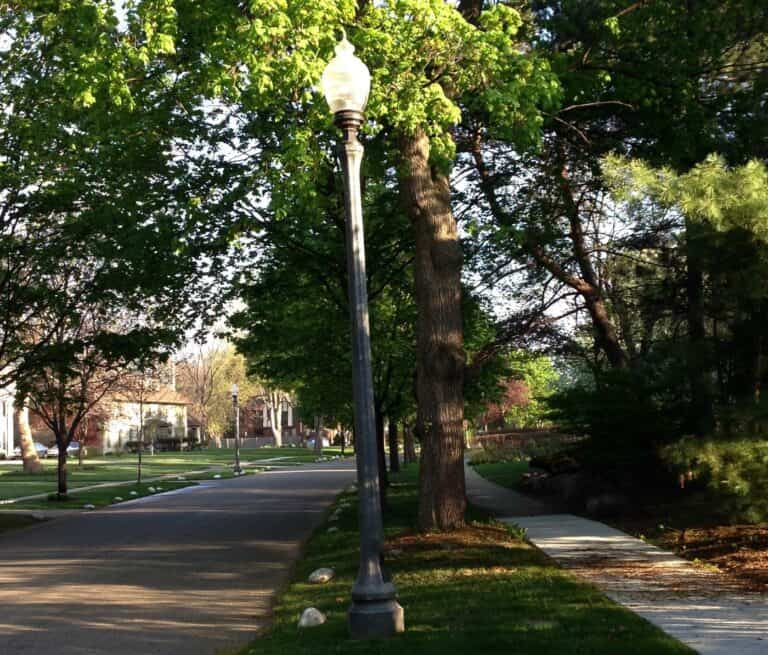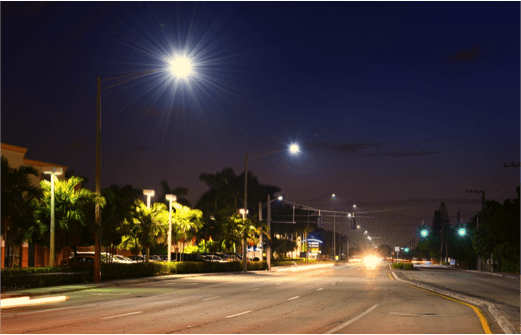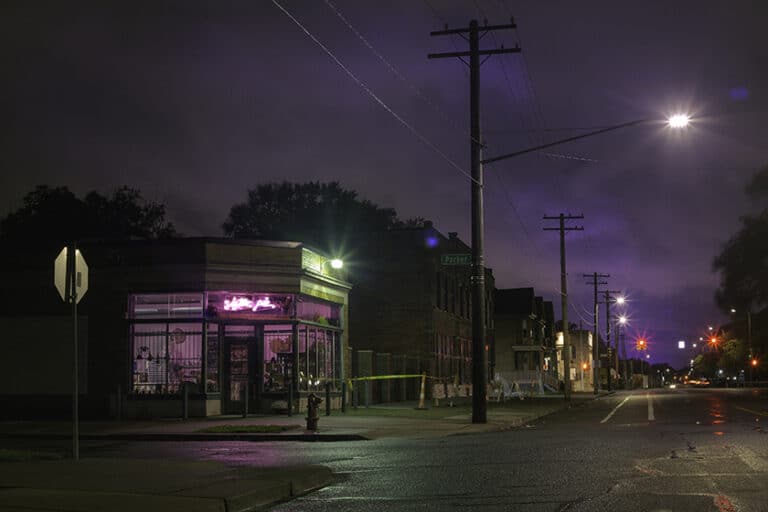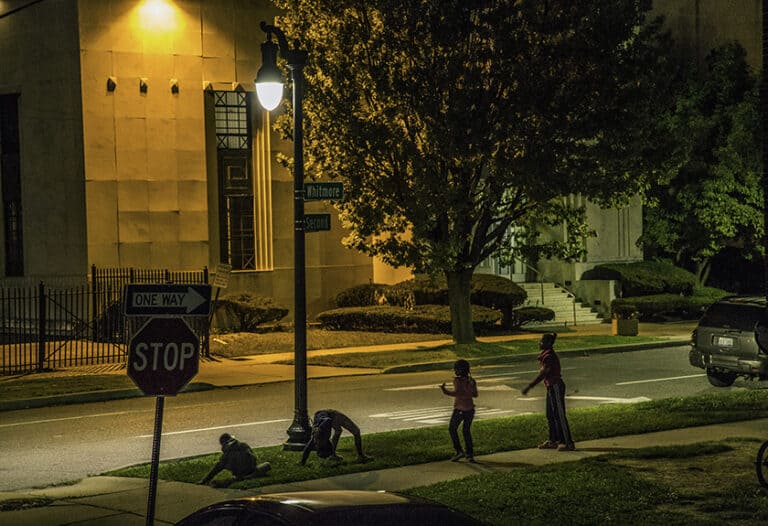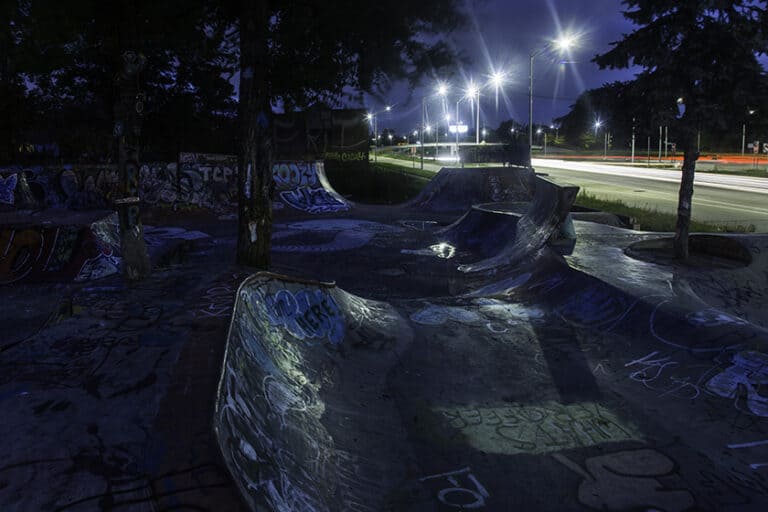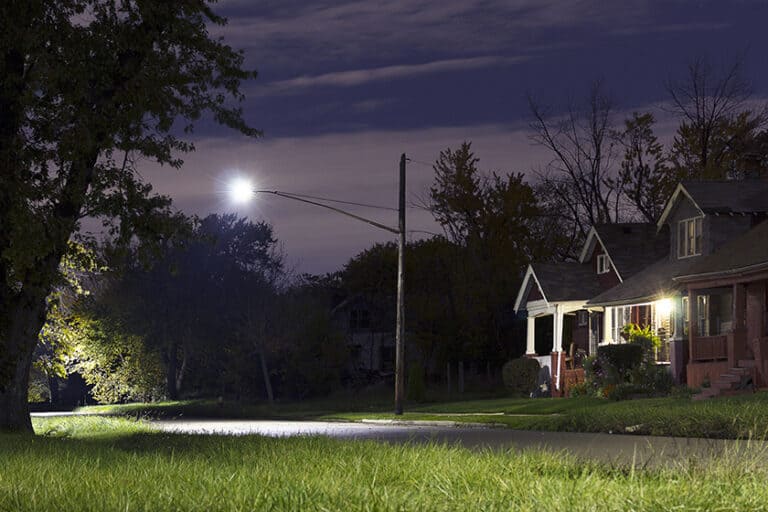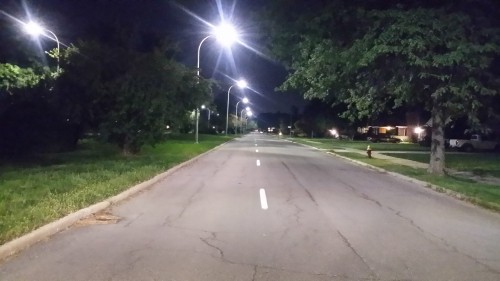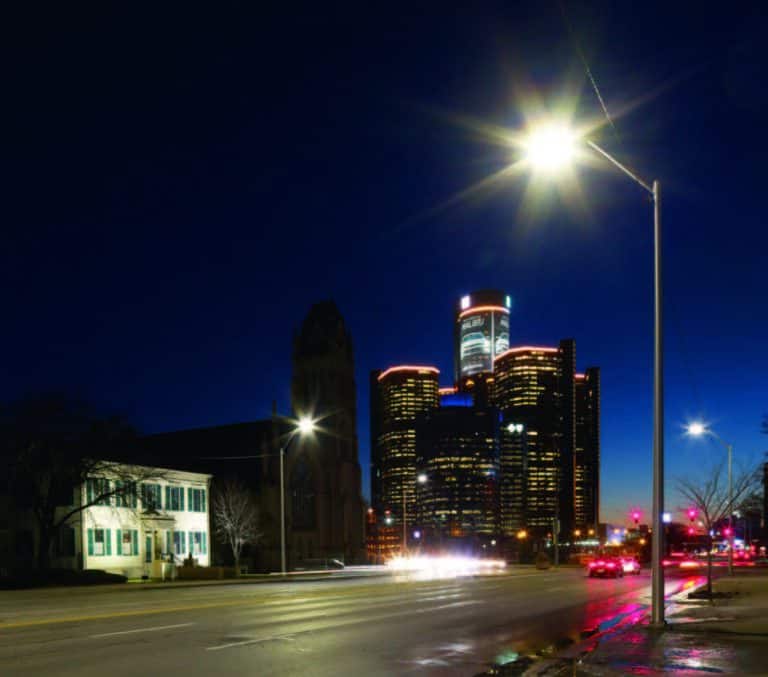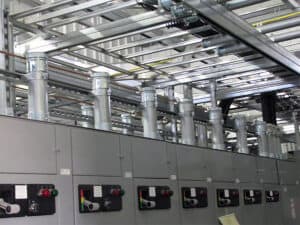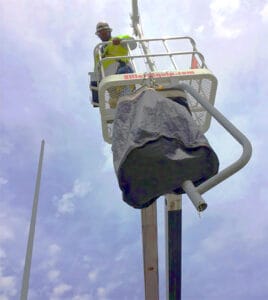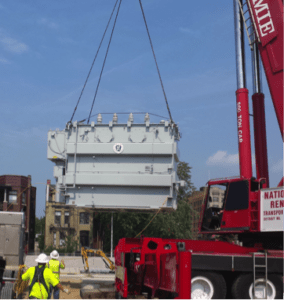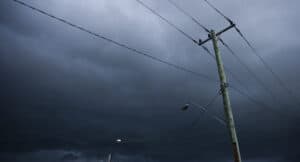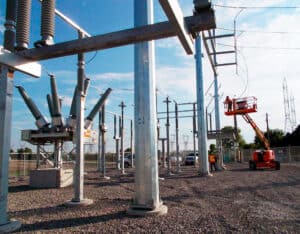Detroit Street Lighting Refurbishment
New LED Lights are Brighter, Whiter, More Energy Efficient
In 2013, it was clear that the broken street lighting system in the City of Detroit needed replacement. More than 40% of the city’s 88,000 streetlights were no longer functioning. Between budget issues and vandalism by metal scrappers, the city could not keep up. Then the State of Michigan created the Public Lighting Authority of Detroit (PLA) based on an idea instigated by former Mayor Dave Bing in 2012 to make an authority that was debt-free when the city was going through bankruptcy.
The PLA resolved to turn the lights back on throughout the city through improvement, modernization, and maintenance. At the same time, they needed to optimize funding and act quickly. The PLA chose to modernize the city’s lighting by choosing high-efficiency LED lights. Not only are LEDs brighter than the old high-pressure sodium lamps, but they last 3-5 times longer, generate brighter, whiter light, and cost far less to operate.
Motor City Electric Utilities Co. (MCEU) was a vital member of the team assembled to help the PLA achieve the goals of completely relighting all neighborhoods by 2015 and all major thoroughfares by the end of 2016. MCEU and two other contractors went ZIP code by ZIP code through city neighborhoods replacing the old streetlights and light poles. They also upgraded 85% to 90% of the lighting system’s wiring and circuitry infrastructure. In many areas, the aging infrastructure was more than a half-century old. It required a complete reconfiguration of the electrical system to be fed by the distribution grid provided by DTE Energy.
A Big Lighting Job
Motor City Electric Co. and affiliates installed Sixty-five thousand lights. Detroit has roughly 30,750 street blocks covering 2,850 miles of road. While the schedule called for crews to install 500 lights per week, they averaged 900 per week! New street lights in neighborhoods are 150-watt equivalent LEDs, twice as bright as the 75-watt equivalent high-pressure sodium lights that they replace. New lights on major thoroughfares such as Gratiot, Woodward, and Grand River are 400-watt equivalent, compared to the old 250-watt equivalent lights.
Special Lighting Touches for Historic Neighborhoods
Residents in some of Detroit’s historic districts want to preserve the look of period-style streetlights in their neighborhoods, raising funds to pay the difference in cost. Several communities, including Indian Village, Palmer Woods, and Sherwood Forest, paid extra to install decorative poles and light fixtures. Some commercial districts, including parts of downtown, also received new, decorative streetlights. The Historic Indian Village Association talked lighting officials out of their plan to replace the neighborhood’s 1910s-era streetlight poles, which stand on tree lawns next to curbs. The association persuaded the PLA to restore the poles and install LED lights instead, then raised money for the extra cost.
Foiling Thieves
To protect the investment made in relighting the city, Detroit switched from copper to aluminum wiring in the new street lights since aluminum has only a fraction of the value of copper on the scrap market, making it much less attractive to potential thieves. Additionally, the new lights use overhead wiring, so the copper located at their bases is no longer necessary.
Flipping the Switch on the New Lighting
On December 15, 2016, The City of Detroit switched on the symbolic last new LED light, and Detroit became the most prominent American city to have 100 percent LED public lighting. Motor City Electric Co. completed the $185-million project one year ahead of the original schedule and a few million dollars under budget. Detroit did not receive any federal money for the relighting effort, financed with a $185 million bond issue that the City of Detroit will repay from a dedicated portion of the city’s utility user tax.
Lighting Deters Crime
An added benefit to the new lighting is its effect on crime. Uniform street lighting assists police and residents in deterring crime. Burglaries, robberies, vehicle theft, and other property offenses in Detroit are down 18 percent from the same time last year, according to the Detroit Police Department.
Financial & Environmental Savings
While the new LED lighting fixtures are saving Detroit nearly $3 million in electric bills and cutting carbon emissions by more than 40,000 tons a year, there has been a need to replace 50-60 light poles in the city each month that get hit.
Ongoing Maintenance
A maintenance program will address street light outages within three to five days of receiving a report of an outage. The PLA has a partnership with DTE Energy to offset staffing needs and aid in repairing the system. The city slated its exit from the electricity business by migrating customers to DTE over seven years, starting in 2015.
Detroit residents can contact the lighting authority to report a light out by calling 844-LIGHT313.
